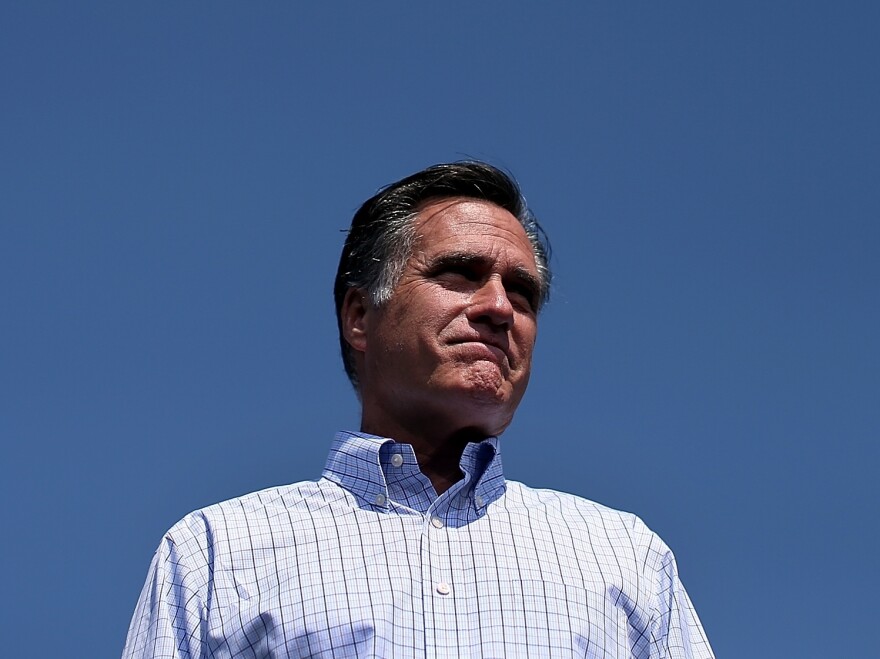Jeffrey H. Anderson is a writer for The Weekly Standard and a senior fellow at the Pacific Research Institute.
There are nine key swing states in this election (Florida, Ohio, Virginia, Colorado, Iowa, New Hampshire, Pennsylvania, Wisconsin, and Nevada), with four other states (particularly Michigan, which President Obama must win, and North Carolina, which Mitt Romney must win) that also have some potential to come into play in a tight race. So far, Rasmussen Reports is the only nonpartisan polling outfit that has conducted likely-voter surveys over the past two months in at least eight of those nine key swing states. Based on that polling, and assuming that the other states would go as expected, President Obama is currently on course for 290 electoral votes (and reelection), while Mitt Romney is on course for 222 —with ties in Virginia and Colorado (and no recent polling available in New Hampshire).
Rasmussen's polling shows Obama up by 2 points (48 to 46 percent) in Florida, 1 point (47 to 46 percent) in Ohio, 4 points (48 to 44 percent) in Pennsylvania, and 5 points (50 to 45 percent) in Nevada. It shows Romney up by 1 point (48 to 47 percent) in Wisconsin and 2 points (46 to 44 percent) in Iowa.
This polling highlights the crucial importance of Florida, a must-win state for Romney, and Ohio, a near-must-win state. If Romney's 2-point deficit in the Sunshine State and his 1-point deficit in the Buckeye State were to become slight advantages, then the overall tally would become Romney 269, Obama 243 — as Florida represents a swing of 58 electoral votes (either Obama gets 29 or Romney gets 29), and Ohio represents a swing of 36 electoral votes (18 for one candidate or the other).
As for winning in Florida, Romney would be well served by doing three things: One, start emphasizing Obamacare, which — by a 24-point margin (59 to 35 percent) seniors want to see repealed (according to the latest Rasmussen polling). Two, start highlighting Obama's Senior Swindle, his shady ploy to try to hide Obamacare's Medicare Advantage cuts from seniors until after the election. Drawing attention to this ploy — the legality of which has openly been called into question by the Government Accountability Office — would not only alert seniors that millions of them are projected (by nonpartisan government scorekeepers) to lose their Medicare Advantage plans courtesy of Obamacare, but would also remind voters of all ages of the Cornhusker Kickback, the Louisiana Purchase, Gator Aid, and all the rest of the shady back-room deals that were essential to Obamacare's passage. And three — in the spirit of Romney's comments honoring Neil Armstrong during his GOP Convention speech — start championing the space program, the embarrassing decline of which is one of the most glaring examples of Obama's lack of regard for (or belief in) American exceptionalism. The country that proudly put a man on the moon shouldn't have to purchase a ride from the Russians to get into space.
As for winning in Ohio, Romney would be well served to explain how he would get the economy moving again and, in particular, to emphasize his determination to shield Main Street, U.S.A. from the sorts of high taxes, heavy regulations, and crony capitalism that are the essence of Obamacare and so much of the Obama agenda. Moreover, he would be well served, in a state in which — amazingly — voters in all 88 counties backed a referendum disavowing Obamacare's individual mandate, to highlight that mandate. Whether Romney chooses to remind Ohio voters that state governments often require people to buy products or services (auto insurance, for example) or, better yet, to reassure Ohio voters that what happened in Massachusetts stays in Massachusetts, he shouldn't let his own support for an individual mandate in the Bay State keep him from highlighting perhaps Obama's greatest political vulnerability: Under Obamacare, the federal government would, for the first time in American history, compel private citizens to purchase a product or service of the federal government's choosing, merely as a condition of living in the United States.
Copyright 2021 The Weekly Standard. To see more, visit The Weekly Standard.


